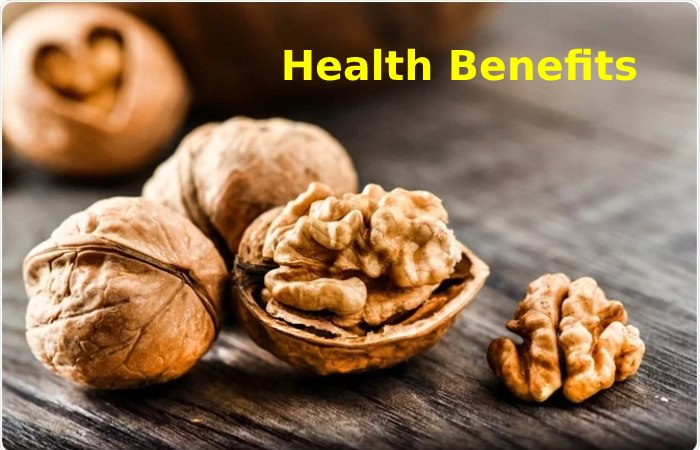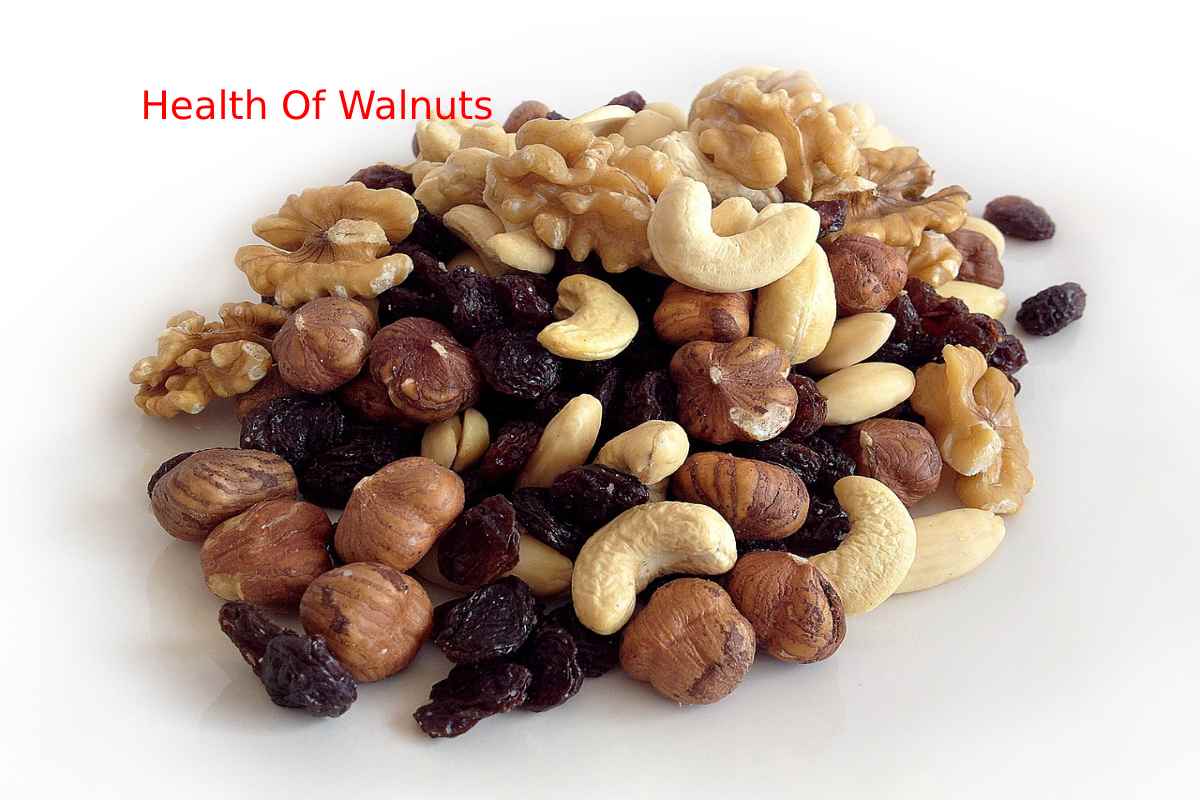Table of Contents
What Are The Health Of Walnuts?
Health Of Walnuts are round, single-seeded drupes that grow on walnut trees. They are a good source of healthy fats, protein and fibre. As a result, they can improve heart and bone health and help with weight control, among other things.
Walnut trees are natural to eastern North America but are now generally grown in China, Iran, and in the United States in California and Arizona.
Beneath the nutshell is a wrinkled, spherical nut. The nut is split into two flat segments for commercial sale.
Nutrition Breakdown
According to the Integrated States Department of Agriculture (USDA) National Nutrient Folder, 1 cup contains unbranded organic nuts (30 grams).
Energy: 200 calories
Carbohydrates 3.89 grams (g)
Sugar: 1g
Fibre: 2g
Egg white: 5g
Fat: 20g
Calcium: 20 milligrams (mg)
Iron: 0.72mg
Sodium: 0mg
Nuts Are Also A Good Source Of:
manganese
the copper
magnesium
Game
Vitamin B6
the iron
Combining healthy fats, protein, and fibre in nuts helps increase satisfaction and satiety. In addition, it makes them more nutritious as a snack than chips, crackers and other simple carbs.
Health Benefits

Eating plant-based foods of all kinds has long been associated with a reduced risk of many lifestyle-related health problems.
Potential health benefits of walnuts include strengthening the cardiovascular system and also, bone health, reducing the risk of gallbladder disease, and treating epilepsy.
Heart Health
The mono and also, polyunsaturated fatty acids found in walnuts have lower LDL (bad) cholesterol and triglyceride levels.
An education published in the British Journal of Nutrition presented that those who ate nuts more than four times a week had a 37% lower risk of developing coronary heart disease than those who never or rarely ate them.
In 2013, Scientists Published The Results Of A Small Study Showing That Trusted Source:
Walnut oil may promote endothelial function
Whole walnuts can improve the process of eliminating “bad” LDL cholesterol
A meta-analysis published in 2009 optional that a reliable source of a nut-rich diet was associate with better lipid and also, cholesterol profiles. The researchers also concluded that walnuts might also help reduce oxidative stress and inflammation.
Weight Control
Rendering to a study published in the Asia Pacific Journal of Clinical Nutrition, regular nut consumption is associated with higher resting energy expenditure.
In studies that compared weight loss to diets that included or excluded nuts in moderation, diets in moderation showed more significant weight loss.
Gallstone Disease
According to another learning publish in the American Journal of Clinical Nutrition, eating more nuts is associate with a lower risk of having a cholecystectomy, an operation to remove the gallbladder.
In over 1 million people documented over 20 years, women who ate more than 5 ounces of nuts per week had a significantly lower risk of cholecystectomy than women who ate less than 1 ounce of nuts per week.
Bone Health
Nuts are a good source of the mineral copper. However, severe copper deficiency remains associated with lower bone mineral density and a better risk of osteoporosis.
Osteoporosis remains a condition in which bones become thinner and less dense, causing them to break and break more easily.
More research is want on the effects of mild copper deficiency and also, the potential benefits of copper supplementation for preventing and controlling osteoporosis.
Copper also plays a vital role in keeping collagen and elastin, critical structural components of the body.
Without enough copper, the body cannot replace damaged connective tissue or the collagen that makes up the building blocks of bones. As a result, it tin-lead to various problems, including joint dysfunction.
Nuts contain a large amount of manganese. In a mixture of calcium and also, copper, manganese has been shown to prevent osteoporosis.
Magnesium, another mineral found in nuts, is essential for bone formation as it facilitates calcium absorption in the bones.
Also Read: What Is Skin Diseases? – Summary, Skin Disease, Types, And More

